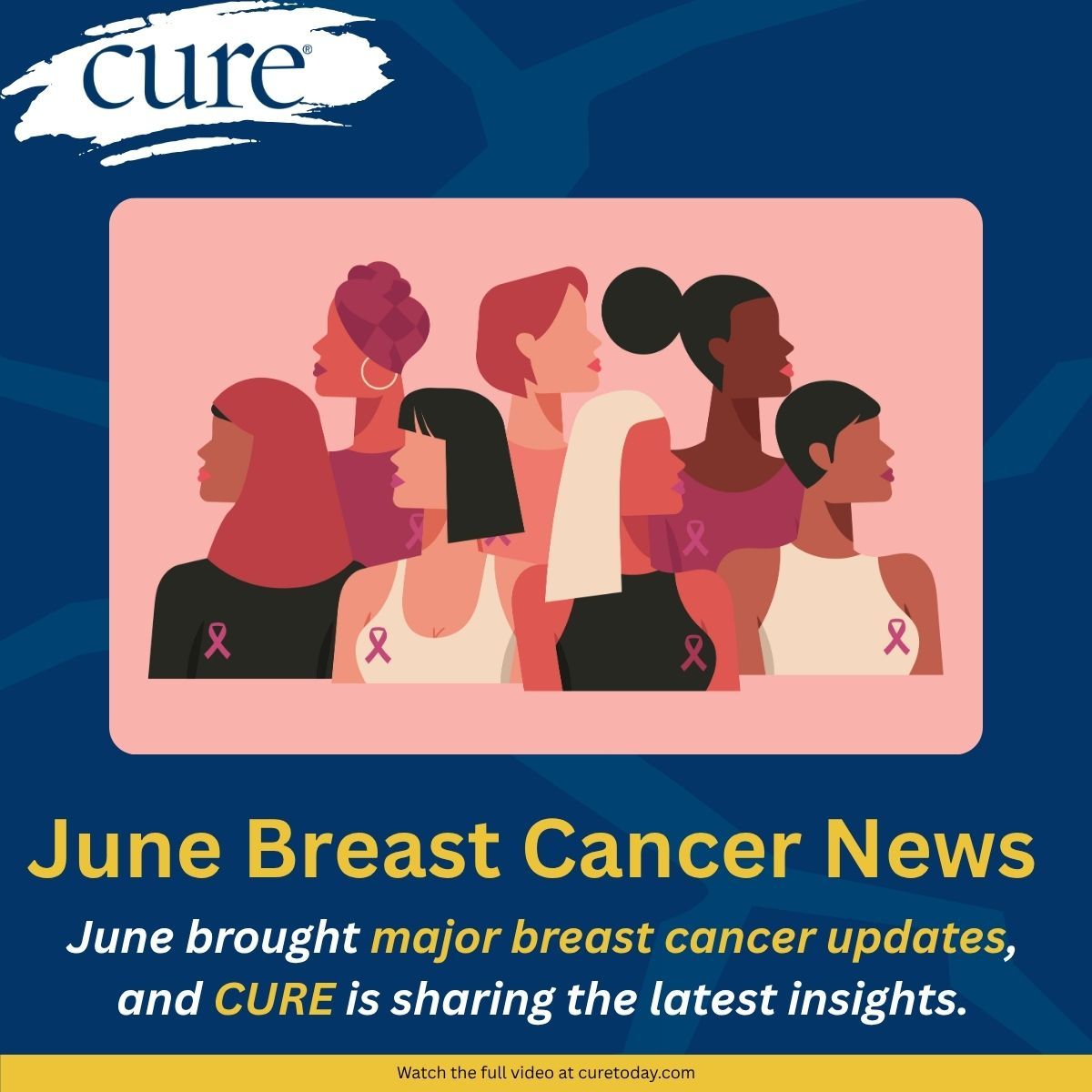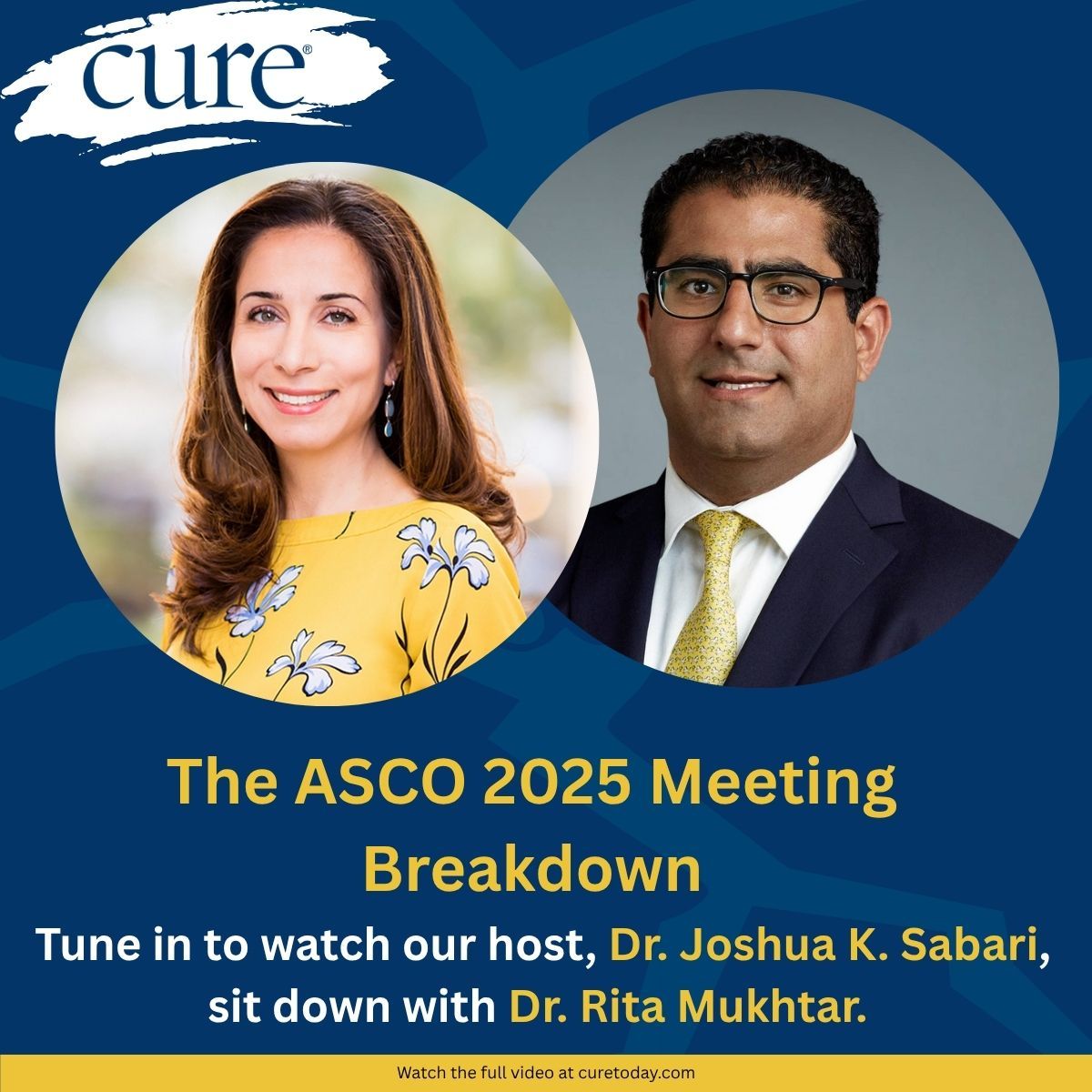The last week was a busy one for us here at CURE® and across the oncology space in general. There were two major meetings we covered: the San Antonio Breast Cancer Symposium and the American Society of Hematology Annual Meeting.
The San Antonio Breast Cancer Symposium — also known as SABCS — features breast cancer research conducted around the globe. We had editors on the ground in San Antonio, as well as back in our office covering the meeting. Here are some highlights from SABCS.
Topics discussed:
- 1:00 Kadcyla shows improved survival in HER2-positive early breast cancer
- 2:12 Keytruda plus chemo improve event-free survival in high-risk, early-stage triple-negative breast cancer
- 3:29 Tecentriq plus Perjeta, Herceptin and chemo doesn’t improve pathologic complete response rates in the presurgical setting for HER2-positive breast cancer
- 5:00 Recurrence-free survival is no different among races in HR-positive, HER2-negative breast cancer
And, to view all of our conference coverage, be sure to check out curetoday.com/conference
Kadcyla Is the ‘First Therapy to Show Improved Survival’ in a Breast Cancer Subset
For in patients with HER2-positive early breast cancer that still had remaining invasive disease after undergoing neoadjuvant therapy Kadcyla outperformed Herceptin when it came to overall survival, which is the time until death of any cause, and invasive disease-free survival, which is the time patients live without experience metastases or invasive disease.
The findings, which come out of the KATHERINE trial, mark the “first therapy to show an improved survival after post-surgical therapy in patients with HER2-positive early breast cancer and residual invasive disease after neoadjuvant therapy,” according to study author, Dr. Sibylle Loibl, who presented the findings at SABCS.
More specifically, at the 8.4-year follow-up mark, 70.1% of patients in the Kadcyla group and 62% in the Herceptin group were still alive. Also at that point, 32.2% given Kadcyla did not develop invasive disease, compared with 19.7% of patients in the Herceptin group.
Keytruda, Chemo Show Early-Stage Breast Cancer Event-Free Survival Benefits
Findings from phase 3 KEYNOTE-522 trial showed that presurgical Keytruda plus chemotherapy, followed by postsurgical Keytruda led to improved event-free survival — that’s time a patient lives without complications from their disease — in patients with high-risk, early-stage triple-negative breast cancer.
At a median follow-up of 63.1 months, the five-year event-free survival rate was 81.3% with neoadjuvant Keytruda/chemotherapy followed by adjuvant Keytruda compared with 72.3% in those who received placebo/chemotherapy and then placebo. These findings, according to Dr. Peter Schmid, further support the use of this Keytruda regimen as the standard of care for this patient population.
Tecentriq Plus Perjeta, Herceptin, Chemo Does Not Improve pCR in HER2+ Breast Cancer
Another phase 3 trial — the APTneo Michelangelo — showed that adding Tecentriq and Herceptin to Perjeta and chemotherapy actually did not lead to a statistically significant improvement in pathologic complete response (that’s the disappearance of cancer) when given in the presurgical setting for patients with HER2-positive breast cancer.
The study found that while Tecentriq and Herceptin-containing regimens did lead to a higher number of pathologic complete responses, these difference between the two treatment groups was not statistically significant, meaning that the researchers could not definitively say that one therapy was the result of better outcomes.
No Racial Difference in Recurrence-Free Survival in HR+, HER2- Breast Cancer
While research has shown that Black and White patients with HR-positive, HER2-negative breast cancer tend to have different survival outcomes, research presented at SABCS found that three-year recurrence-free survival is actually comparable between the two groups.
“More aggressive treatment can improve outcomes for (patients with HR-positive, basal-type tumors), as demonstrated by improved (overall survival) in (those who) achieved pathologic complete response,” study investigators stated in the poster. “These data highlight the importance of genomic testing to help optimize treatment and reduce outcome disparities in Black women.”
For more news on cancer updates, research and education, don’t forget to subscribe to CURE®’s newsletters here.




